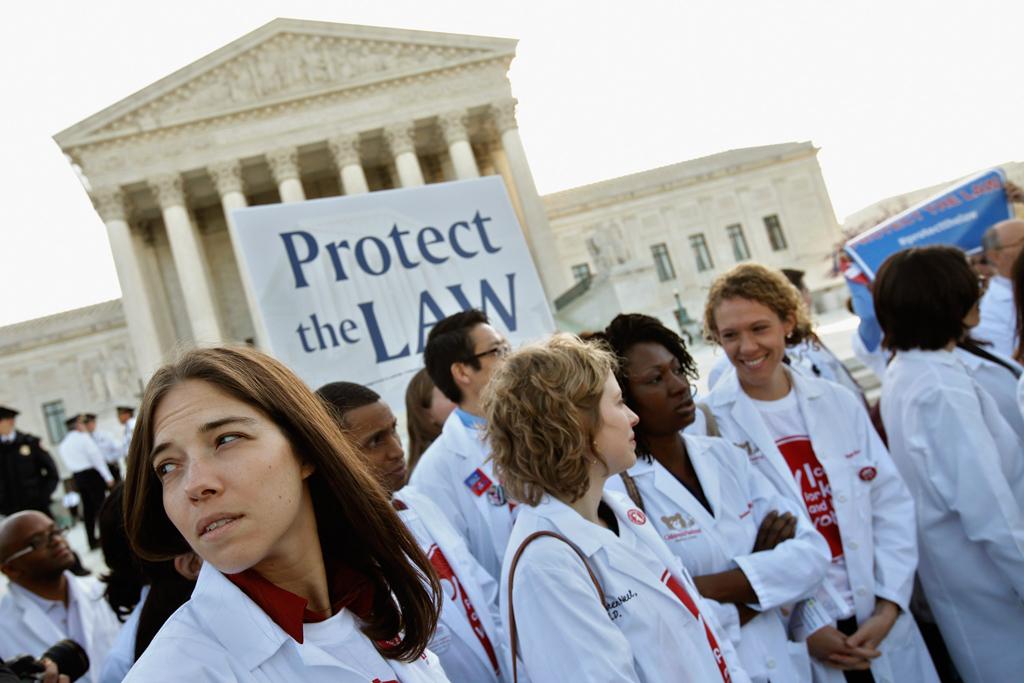Obama health care: 47% disapprove in latest poll
Medical students and professionals participate in a news conference in support of the Patient Protection and Affordable Care Act outside the U.S. Supreme Court Building on March 26, 2012 in Washington, DC. Today the high court, which has set aside six hours over three days, will hear arguments over the constitutionality of the act.
Forty-seven percent of Americans still disapprove of the Affordable Care Act championed and signed into law by President Barack Obama in 2010, according to the latest New York Times/CBS News poll, released today.
The poll came out just as the law went before the Supreme Court for the next three days. The justices will hear arguments on whether it is constitutional or not, in a challenge brought by 26 states.
The poll, conducted by The New York Times and CBS News from last Wednesday to Sunday, illustrates that the Obama administration has not succeeded in making its case to the public about this signature piece of domestic legislation.
Of those polled, 36 percent approved of the health care law, while 47 percent were opposed. Of those who had strong opinions, nearly twice as many strongly disapproved of the legislation (30 percent) as approved of it (16 percent).
The poll fell mostly along partisan lines, with Democrats approving of the law, while Republicans and Tea Party supporters disapproved. The Times said, "Disapproval peaks among people who call themselves very conservative, with more than 8 in 10 opposing the law."
More on GlobalPost: Supreme Court prepares to decide constitutionality of health care law
Outside the Supreme Court, people lined up for days, waiting to get into the hearings, and as the arguments started on Monday there were protesters both for and against the law holding signs and chanting, according to The Los Angeles Times.
As a measure of how seriously this case is being handled, the amount of time given for arguments – six hours each day for three days – is the longest argument in more than 40 years, according to NPR.
More on GlobalPost: Affordable Care Act unconstitutional, most voters believe: poll
On Monday, the justices will decide whether the health care law can even be considered yet, because of an 1867 law called the Tax Anti-Injunction Act, reported The Washington Post. The Anti-Injunction Act says that someone has to pay a tax before challenging its constitutionality, and in this case it would apply to the health care law's penalty for not having insurance, which doesn't come into effect until 2015.
Once the court has decided they can consider the health care law, they will focus on whether the individual mandate, which induces people to buy health care, is constitutional, whether other major provisions in the law that guarantee health care coverage will also fall if the individual mandate does, and whether Medicaid expansion in the law coerces states into participating, according to NPR.
More on GlobalPost: 3D printing: A stepping stone to new human tissue and body parts
The story you just read is accessible and free to all because thousands of listeners and readers contribute to our nonprofit newsroom. We go deep to bring you the human-centered international reporting that you know you can trust. To do this work and to do it well, we rely on the support of our listeners. If you appreciated our coverage this year, if there was a story that made you pause or a song that moved you, would you consider making a gift to sustain our work through 2024 and beyond?
